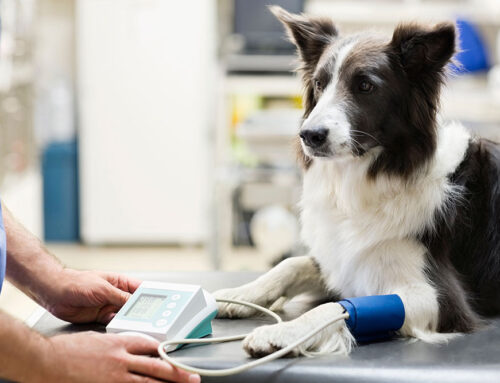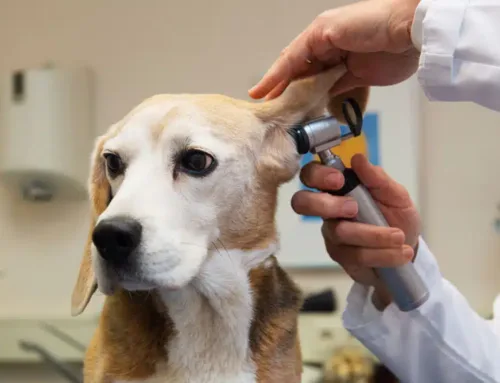While pets may not speak our language, they communicate through subtle cues and behaviors that can indicate underlying health issues. Pet owners should pay attention to these signs, no matter how seemingly insignificant, as they could be early warning signals of serious health problems in their four-legged friends. To empower you in caring for your pet, our Fairfax Veterinary Clinic team illustrates crucial health signs to watch for that indicate veterinary attention is needed.
1: Eating habit changes
Sudden appetite loss in your pet may indicate pain, dental problems, gastrointestinal (GI) issues, pancreatitis, or systemic illness. Conversely, an increased appetite, especially when accompanied by weight loss, could indicate hyperthyroidism or diabetes. Keep an eye on your pet’s chewing patterns, too, as difficulty chewing or swallowing could signal dental disease, oral tumors, or megaesophagus.
2: Excessive thirst or urination
Increased thirst (i.e., polydipsia) and increased urination (i.e., polyuria) may indicate urinary tract disorders, diabetes mellitus, kidney disease, or Cushing’s disease (i.e., hyperadrenocorticism). Monitor your pet’s water intake and urine output to catch valuable clues about their health status and hydration levels.
3: Persistent vomiting or diarrhea
While an occasional bout of vomiting or diarrhea that resolves the same day is typically not worrisome, untreated chronic vomiting or diarrhea can lead to dehydration, electrolyte imbalances, and nutrient deficiencies. Ongoing GI distress may be caused by dietary indiscretion, infections, parasites, inflammatory bowel disease, or more serious conditions, like organ failure or cancer.
4: Lethargy or weakness
Your pet’s lack of energy or enthusiasm may indicate pain, discomfort, or underlying medical conditions. Weakness or reluctance to move could also signal musculoskeletal problems, anemia, heart disease, neuromuscular conditions, or respiratory issues.
5: Difficulty breathing
Labored breathing, coughing, wheezing, or open-mouth breathing are all signs of respiratory distress that require immediate attention. Respiratory issues in pets can be caused by infections, heart disease, lung disorders, or airway obstructions in the trachea, bronchi, or lungs.
6: Weight changes
Unexplained weight loss may indicate underlying health problems, such as hyperthyroidism, diabetes, cancer, or GI disorders. On the other hand, sudden weight gain could indicate hypothyroidism, Cushing’s disease, or fluid retention caused by heart disease.
7: Limping or lameness
Persistent limping may indicate orthopedic problems, such as fractures, ligament tears, joint inflammation (i.e., arthritis), or developmental disorders. A shifting leg lameness that comes and goes may signify Lyme disease, which is an infection transmitted by a black-legged tick. In some cases, limping may signify that neurological issues are affecting your pet’s ability to move and coordinate.
8: Skin and coat changes
Your pet’s skin and coat serve as important indicators of their overall health. Any abnormalities, such as lumps, bumps, sores, rashes, or hair loss, should be examined by your Fairfax Veterinary Clinic veterinarian. Skin issues could be caused by allergies, infections (e.g., bacterial, fungal, or parasitic), hormonal imbalances, or underlying systemic diseases.
#9: Behavior or mood changes
Pay close attention to any alterations in your pet’s behavior, mood, or temperament. Increased aggression, anxiety, depression, or lethargy could be signs of underlying health issues. Behavioral changes may stem from pain, discomfort, stress, fear, or neurological problems affecting your pet’s emotional and physical well-being.
10: Balance or coordination challenges

Balance loss, stumbling, falling, or head tilting may indicate vestibular disorders, inner ear infections, neurological diseases, or brain abnormalities. These issues require prompt veterinary evaluation to determine the underlying cause and begin appropriate treatment.
Be proactive in monitoring your pet’s health and promptly address any concerning signs, as early detection and intervention are key to successful treatment and recovery. Regular veterinary exams, preventive care, and open communication with our veterinary team are essential for maintaining your pet’s good health.
Remember, subtle changes in your furry friend’s behavior or physical condition can indicate underlying health problems. Stay attentive and responsive to your pet’s needs, and never hesitate to seek our Fairfax Veterinary Clinic team’s advice. We want your pet to enjoy a happy and healthy life by your side.








Leave A Comment